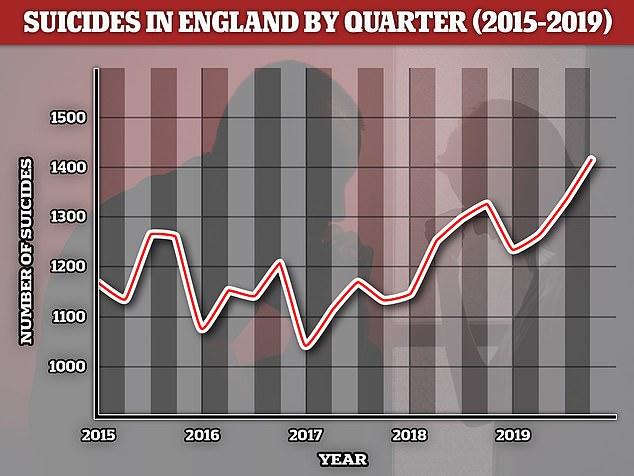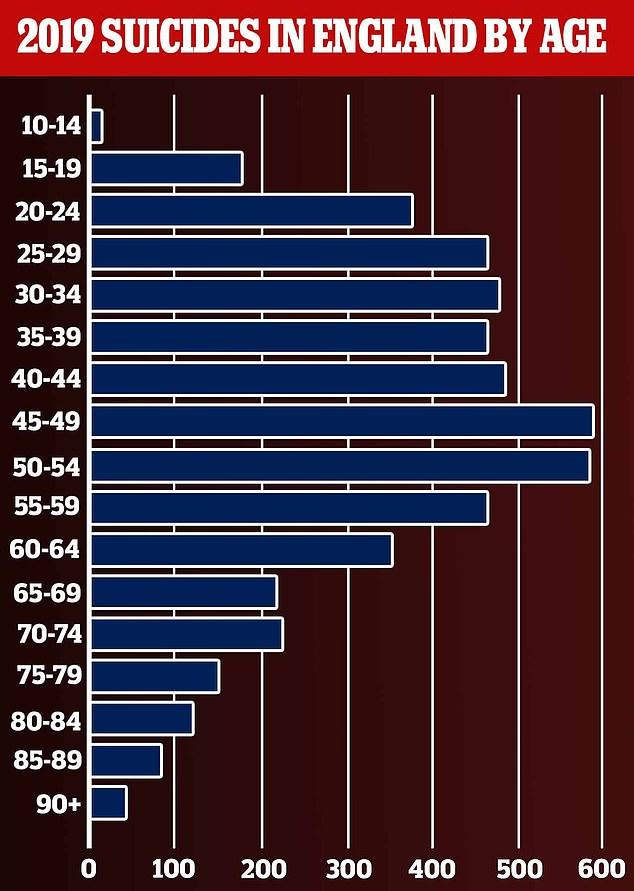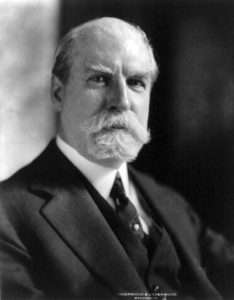“There is a level of panic and catastrophizing about American politics that’s way out of proportion,” says David French. “And that is dangerous to our body politic.”
It’s ironic that French, a Tennessee-based evangelical Christian, has found himself in the position of trying to persuade his fellow conservatives to cool their jets. After all, the 51-year-old writer, litigator, and activist made a name for himself lobbing attacks on laws and policies that he felt were infringing on people’s rights. As president of the Foundation for Individual Rights in Education (FIRE), he helped file suit against college speech codes that were preventing students from voicing unpopular opinions on campus. As a columnist for the conservative magazine National Review, he regularly drew attention to religious liberty violations such as the Obamacare contraception mandate.
But since about the time Donald Trump made his presidential aspirations known, French has found himself in hot water with folks on the political right who fault him for not being a team player. The brief against him was epitomized by a now-infamous May 2019 essay in the Christian journal First Things in which New York Post op-ed editor Sohrab Ahmari complained that “liberalism of the kind French embodies has a great horror of the state, of traditional authority and the use of the public power to advance the common good, including in the realm of public morality.”
In October, French left his perch as a senior editor at National Review to join former colleague Jonah Goldberg and former chief of the now-defunct Weekly Standard Stephen Hayes in a new media venture called The Dispatch. In December, French sat down with Reason Managing Editor Stephanie Slade to explain that while he’s “every bit as conservative” as he was before the Trump era, he’s also deeply committed to the values of classical liberalism.
Reason: In one of your recent email newsletters, you used the phrases common good conservatism and nationalist conservatism. Can you tell us what those terms signify and how they differ from each other, if at all?
French: They’re mainly synonyms in my mind. The reason why I used common good conservatism is because I’m going with phrases used, for example, in some of [Sen. Marco] Rubio’s work and in a lot of the work you’re seeing out of Claremont, out of First Things. It’s emphasizing the role of the government in fostering the common good over the role of the government in protecting liberty.
They would reject, in many ways, this formulation from the Declaration of Independence that we’re endowed with life, liberty, and the pursuit of happiness, and then the next sentence following that, that governments were instituted among men to protect these liberties. They have much greater confidence, for example, than I do, that governments can in fact create economic conditions, can create social conditions that advance human welfare in a concrete and predictable way.
So you’re seeing a lot more emphasis on the right on central economic planning and a lot less emphasis on individual liberty—certainly a lot less emphasis on free speech, a lot less emphasis on economic freedom, more of an argument that because the market has been shaped a great deal by government, that essentially that means it must continue to be shaped as much as we can possibly shape it to advance the common good. It’s a sharp turn from what you would call classic Reagan conservatism.
What do you think caused that departure?
Well, there’s always been a strain of the GOP that is populist. And populism is rarely focused on small government and individual liberty, particularly the populism that you’ve seen in the South over the years….Populism in the South was public works: a big public intervention into the poor rural South.
There’s a very flawed belief that the principles of Reagan Republicanism and classical liberalism have failed this country—this is an argument you’ve seen from Patrick Deneen at Notre Dame—and that therefore we need a correction.
The thing that has come to exemplify everything that’s wrong with modernity for this crowd, as you well know, is Drag Queen Story Hour. Tell us what those words mean and then give me the Frenchian position on it.
Drag Queen Story Hour is a small movement of drag queens and friends of drag queens who will host, in public libraries scattered around this country, small gatherings of people who will listen to a drag queen read a children’s book. Children come to Drag Queen Story Hour. They see the drag queens and they interact with the drag queens. It’s come to symbolize the advance of the sexual revolution and, particularly, the way that the sexual revolution touches the lives of children. So the argument that was made was that classical liberalism is inadequate to address the threat of Drag Queen Story Hour, and that Drag Queen Story Hour is the product of liberty unrestrained. This is what happens when people are given too much liberty: Drag queens read books to kids.
My argument about this was really pretty simple. I don’t like Drag Queen Story Hour. I would not take my children to Drag Queen Story Hour. But I don’t have to go to Drag Queen Story Hour, and unless they violate anti-obscenity or indecency statutes or otherwise applicable and constitutionally appropriate laws, they enjoy all the protections of the First Amendment that everybody else enjoys. In fact, that open access to the use of public facilities has been a boon to social conservative groups like Christian organizations. There are thousands of churches that conduct worship services in empty classrooms and gymnasiums and cafeterias across this country, who have access to library facilities and other public buildings. They utilize those to say and preach and teach things that the common good conservatives would very much like and very much endorse. And you cannot have a legal system that allows the government to dictate which preferred viewpoint gets access to its facilities. If you embrace such a system, you’re not going to like the outcome.
The idea is that if conservatives can stop Drag Queen Story Hour from happening at the library, then why can’t progressives stop—
They can and will stop church services, Bible studies, Tea Party meetings, GOP gatherings. I mean, once you lift the [requirement of] viewpoint neutrality in access to public facilities, you lift it. It’s gone. And you better be in charge of everything, or you’re going to see your preferred viewpoint locked out of the public square.
Now, that’s a pragmatic response. I tend to think that liberty has independent value. A lot of [common good conservatives] think there is no independent value in liberty unless liberty is used for virtue. But I think the protection of liberty is a common good.
It’s true, though, that people on the left increasingly are trying to use the power of the state to impose their values on conservatives.
Oh, sure.
So why isn’t it true that at some point you have to fight fire with fire?
The fact of the matter is that we have systems in place that protect individual liberty increasingly effectively. This is something a lot of people miss. People who just started following politics recently tend to think that religious liberty is under unprecedented siege, when the reality is religious liberty has more protections right now from government interference than it has had in the last 25 years. People tend to think that free speech is under unprecedented attack, when right now people are more free from the threat of government censorship than they have been perhaps anytime in the whole history of the United States of America. There is an enormous advance of legal protection from censorship from the government over the last 25–30 years that is completely underappreciated.
What we face now isn’t so much the government imposing its values but private actors using the power that they have, whether financial or cultural, to try to crowd out competing voices from the public square. That would be, for example, when the Oscars doesn’t let Kevin Hart be a host. That’s one private entity telling a private citizen he can’t host their gathering. I am concerned about the culture of censorship that exists in a lot of these private actions. But it’s just a fundamentally different thing from the formal censorship that happens at the point of the government’s bayonet.
But we did just go through a presidential administration that wanted to make Catholic nuns provide their employees with birth control. We do have states trying to force bakers and florists to provide their services for gay weddings even if they object on religious grounds. So government power is being wielded.
It’s trying. And that’s been the case throughout American history. I mean, the wisdom of the necessity of the Bill of Rights was made manifest from the very first founding generation. As bad as the Little Sisters of the Poor case was or as bad as the Masterpiece Cakeshop case was, they’re not the Alien and Sedition Acts, and the Alien and Sedition Acts came in the founding generation.
There is a tug of war between government oppression and individual liberty that has been a part of the fabric of this country for 200+ years. I opposed the Obama administration’s legal position in Little Sisters of the Poor. I opposed their legal position in Masterpiece Cakeshop. And by the way, they lost. They lost. Individual liberty won.
Your former boss, National Review Editor Rich Lowry, has recently taken it upon himself to make the case for a “benign” nationalism. Is there such a thing as benign nationalism?
Only if the definition of nationalism is watered down to near meaninglessness. I think the United States of America is a different nation from virtually any other nation in the history of the world. It has a different history. It has a different composition. It is a collection of many nationalities. There’s that old phrase blood and soil nationalism. That’s difficult to translate into the U.S. I mean, whose blood? Which soil? So if you’re going to water nationalism down into, “Well, we have shared historical stories,” or “Most of us like the flag,” or “We’re stirred by specific events from our history, like Normandy Beach,” these things are symbols that matter. But as far as an organizing principle for a coherent politics, I think nationalism is dangerous.
What would nationalism look like as a political organizing principle?
In my view, it’s hard for nationalism to avoid becoming very centralizing—to avoid becoming statism, with the principal actor being the national government. Nationalism is in many ways a direct challenge to the fact of American pluralism. America is a continent-sized, multi-faith, multi-ethnic, constitutional republic. It’s hard to think of a nation anywhere in the world combining so many different nationalities and so many different and often competing strains of faith, with so many different geographies and subcultures.
You hear frequently this phrase used, real America. All of America is real America. The whole thing.
And you say that as somebody who lives in Franklin, Tennessee, a place that conservatives would call real America.
Oh, I’m in the middle of real America. The fact of the matter is that we have many different American experiences, many different American stories, many different perceptions of this country. And I agree: When you have that degree of pluralism, unity is a challenge. But I believe that unity is harmed more than it is helped when you try to centralize.
One complaint that nationalists make is that there’s a liberal elitist pastime of crapping on America. They think we need a renewal of basic pride in our country. You’re a veteran. You enlisted in the Army Reserves after 9/11. You served in Iraq. I imagine you’re a patriotic person. So do you feel like the nationalists have a point?
Yeah. I think that there are people who tell a very flawed story about this country, and I do think there are people who live within this country who don’t particularly like it. But because politics is the art of overreaction these days, I think that we conservatives paint with way too broad a brush about that.
There are people—I experienced that when I was in law school—who just look at the United States as this dreadful beast that was 200 years of greed, exploitation, and genocide followed by a couple of halfway decent social reforms that have made us only marginally less awful. I met people like that. They’re out there. But the idea that that is sort of a dominant strain of thinking—you see this all the time. You’ll hear someone on the right say, “They hate America.” That’s just false. You can nut-pick, and you can find an individual here and there, or even some sort of coherent intellectual movement coming out of some university, that does hate America. But this sort of “they hate America” talk, which is a tool of mass mobilization, is just a flat-out overreaction.
You and your family have been targets of some pretty heinous and horrible speech online. In the time since that started, this has become a highly politicized topic. There’s a lot of talk about needing to regulate social media companies to require them to monitor their users’ speech and make sure that users are not doing things like bullying or spreading false information. Where do you come down on that?
Just going back to my family’s experience: To the extent that true threats are communicated through social media, they should be prosecuted.
Social media companies…should have the liberty to be able to build and foster the kind of community that they seek to cultivate with their product. My general view is the government should take its hands off of social media companies, but that social media companies, when in doubt, should privilege free expression. What I’ve long argued is that social media companies should voluntarily try, as much as is practical with their given platforms, to track the First Amendment. Now, it’s different with different platforms. If you’re a Facebook and you want Instagram to be a much more kid-friendly space, sure. Fine. No nudity. Just like broadcast television without violating the First Amendment restricts profanity and nudity, etc. You can build the kind of community that you want. But as much as possible while doing that, try to avoid outright viewpoint discrimination. When in doubt, err on the side of free speech.
That’s not the government’s business. You hear a lot of argument right now that the government needs to step in to make sure that Facebook or Twitter or YouTube or whoever is sufficiently protective of “free speech” as the government defines it. And they pinpoint Section 230 of the Communications Decency Act [which says that web platforms are generally not liable for the speech of their users], and they say, “That needs to be repealed or substantially reformed.” Let’s be super clear about this: If the government repeals Section 230, it would ultimately create one of the biggest waves of censorship in the whole history of the United States of America. It would not have the effect that people think that it would have.
Why is that?
Section 230 basically says you can have good-faith moderation of user content without turning the moderator into the speaker. What does that mean practically? It means if I write a comment on Facebook, I’m responsible for my comment. Facebook is not. And Facebook can even moderate my comment and delete it if it has racial slurs or whatever. But the moderation of my comments does not make Facebook liable for my speech.
This was enacted as a reaction to two different cases, both out of New York. In one, a court said that an early internet platform that moderated user content was going to be responsible for user speech. In another, the court said that you’re not responsible for user speech if you don’t moderate at all.
What’s the problem there? If you don’t moderate at all, then you’re Gab [a social media site popular on the far right]. And Gab is a sewer. I know there are people who are on it, but Gab is an absolute open sewer, and a company like Facebook will not exist like that.
Because not enough people will want to use it.
Nobody wants to play in the sewer, right? These companies are not going to become the raw open sewage of the internet.
What’s the alternative? If they’re responsible for user speech, they’re going to be vetting your speech. Which means the voices that will exist will be voices that have access to the levers of power [and the ability] to speak in the way that journalists speak or the way that celebrities speak. Average people will not have an opportunity to speak.
Imagine if I can’t comment on Yelp about a restaurant unless Yelp fact checks me. I can’t comment on Facebook about my beliefs about the flaws of the University of Michigan football coach unless Facebook fact checks me. What? So this notion that good-faith moderation is key to allowing the internet that we use and take for granted, it’s absolutely true. It’s indispensable for regular, average, ordinary, everyday Americans to have a public voice. You revise this and you’re going to place these companies in a box: Submit to the government or be a sewer. And that would be a tremendous practical act of censorship.
Let’s get a little more explicitly political. Nobody saw Donald Trump coming, but everybody seems to have a pet theory about how he got elected. Do you have an explanation that you think is the most plausible?
I think there are a couple of factors that are underappreciated in the rise of Trump. One is just his raw celebrity. How many hundreds of millions of dollars were spent by the [Mitt] Romney campaign to brand him with the American public? Hundreds of millions of dollars. And this is a guy who was a governor. He headed up the Salt Lake City Olympics. He had run for president before in ’08. And still, if you’d ask an average American to name three facts about Mitt Romney, even the average American voter, what would they have been? So politicians have to spend a ludicrous amount of money [to brand themselves]. A lot of us who live and eat and breathe politics don’t fully appreciate this.
Donald Trump has been one of the most famous Americans for decades. And his brand, which was particularly enhanced through [his game show] Celebrity Apprentice, is “I’m an entertaining, super smart, super successful businessman.” And then because of his massive celebrity, think about the free media he got. As much as all politicos were like, “Oh, Marco Rubio: rising star. Ted Cruz: the new constitutional conservative,” millions of Americans just didn’t know those guys, and they knew Donald Trump.
And then Donald Trump—the very famous, successful celebrity—sold a very simple, potent message. I should’ve been more aware of just how potent this message was with voters who are not super political but really tired of the status quo. I was buying a truck in Columbia, Tennessee, and I was talking to the salesperson…and he said, “I like Donald Trump because he won’t apologize for America and he kicks ass.” And I thought, “You know, that’s a pretty compelling, simple message: He’s strong. He’ll fight for America.”
You briefly thought about running as a conservative challenger to Trump in the 2016 general election. Do you think that’s why you’ve become the subject of so much ire?
There were a couple of waves of anger. One wave was in late 2015/early 2016, when I wrote very critically about the alt-right, and that triggered just this awful backlash. Then when I considered running, there was another wave. And then I think the most recent [reason] is that there are very few Christian conservatives who were publicly Never Trump in the election who have maintained that stance. Very few.
Why have you been so stubborn on that?
I’m every bit as conservative as I was the day before Trump came down the escalator. I just think Trump is fundamentally incompatible with what I thought the conservative movement was, and I’m not willing to concede what I believe the conservative movement should be to him.
I reject this idea of all of these Americans sitting around going, “I need a president to fight for me.” You don’t. You’re a free American citizen. There is a level of panic and catastrophizing about American politics that’s way out of proportion. And that is dangerous to our body politic. I just do not believe that the defense of the values that I care the most about and have fought the hardest for in my life—I don’t think those values need Donald Trump as their champion. I don’t believe the pro-life movement needs him. I don’t think the argument for religious liberty needs him. I don’t think the argument for free speech needs him. I don’t think we need him.
We already were living in a world where progressives watch MSNBC and conservatives watch Fox News. With sites like The Dispatch and Breitbart and Jacobin, now everybody can choose the precise echo chamber that they want to live in. Does that worry you at all?
It worries me a ton.
This is a large issue, and it’s creating huge gaps of knowledge in the politicized portion of the American electorate, those people who pay close attention to politics. It’s creating a complete distortion field in our perceptions about each other.
I don’t know if you saw the More in Common research that said that the people who are most well-informed about politics are most wrong about the political beliefs of their opponents—they tend to believe that their opponents are far more extreme than they really are. That’s the product of people engaging with media that feeds that perception. It’s exacerbating divisions. If you think the Democrats are 25–30 points more extreme than they really are, doesn’t that raise the stakes of the election a lot in your mind?
Yeah, we’ve got a real problem. And I live in the heart of Trump country, and I see it every single day. If you read Twitter, progressives will say, “Look at all those bad people in Trumpland who see all of these terrible things that Trump has done and love him anyway. What a pile of hypocrites those people are.” Well, that applies to some people. It applies to an awful lot of the very vocal Trump supporters you’ll see online, because they know everything Trump does. They have histories of condemning the same behavior in Democrats and then they just flip around.
But your average, regular, everyday Trump voter doesn’t see the world like that. The media that they watch is very effective at defending Trump and very effective at highlighting Democratic excesses and Democratic wrongdoing. So if you talked to somebody at random in Franklin, Tennessee, about Donald Trump and they pay attention to politics, they’re going to know all the best defenses of Trump about Ukraine, and they might believe that they know terrible things about Biden that have been spread around conservative media. Is it really true that they have accepted all the bad that Trump has done? No. They don’t believe it.
I’ll never forget, I had a conversation with a sweet lady at my church. She said, “Why do you, David, still not support our president?” And rather than have a long conversation…I said, “You know, I just want a president who doesn’t lie all the time.” And she looked at me, and she said, “Donald Trump lies?” with all sincerity, with every ounce of sincerity in her. This is somebody who watches Fox primetime, who listens to Rush [Limbaugh] or Mark Levin. She would be able to talk to me about the basic outlines of the Ukraine controversy or the basic outlines of the Russia investigation. But the defense of Trump comes through so powerfully that there is no perception of the truth of the underlying indictment.
Do you have any optimism about our ability to break out of this place that we’ve gotten into as a country?
Not in the short term. I don’t think that there is any significant social, cultural, political, religious trend that is pulling us together more than it’s pushing us apart. Politics is only one part of that.
There was a book written several years ago called The Big Sort. All of the trends that were identified in that book have only accelerated. We tend to live around like-minded people more than we used to. The percentage of Americans living in landslide counties, counties that went for one candidate or another by 20 points or more, is higher than it’s been since we’ve been measuring the statistic. If you look at everything from [college football to Game of Thrones], a lot of pop culture preferences map with political preferences….And then if you look at the map of faith—where do people who go to church regularly live?—it is not an even distribution across this country. These are tectonic forces that are dividing us.
In my view, that’s one of the things that is so dangerous about nationalist conservatism. The response to these tectonic forces should not be forced centralization. It should be enhanced federalism. Let San Francisco be San Francisco. Let Franklin be Franklin. Nancy Pelosi needs to be less important in my life. And Ted Cruz needs to be less important to a San Franciscan’s life.
This interview has been condensed and edited for style and clarity.

from Latest – Reason.com https://ift.tt/3ef9AKT
via IFTTT








